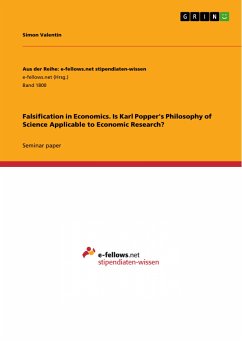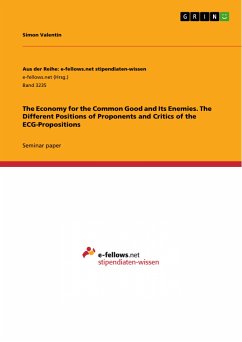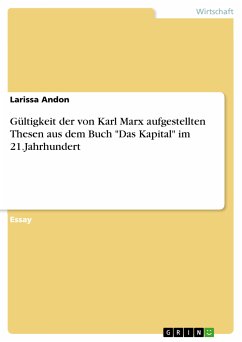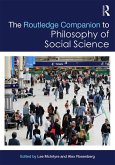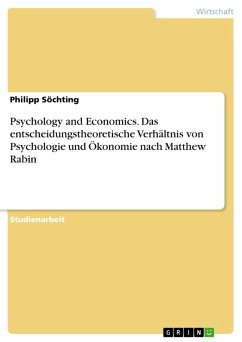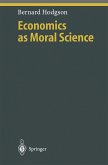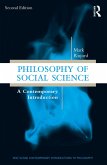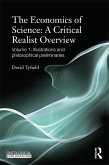Seminar paper from the year 2016 in the subject Economics - Other, grade: 1,7, University of Kassel (Institut für Volkswirtschaftslehre (IVWL)), course: Philosophy of Economics, language: English, abstract: The question I want to examine in this paper is if and how falsification as a method and Popper's philosophy of science in general is appropriate for and applicable to economic research. To begin with I will start with a short introduction about Karl Popper and his philosophy. Then I will explain and evaluate the concept of falsification with its strengths and weaknesses and its use for science in general. Afterwards I will examine the influence and actual usage of falsification in economics in general to finally evaluate the chances and limits of the concept in this area of science. It is often said that a significant characteristic of economic research is the strong staying power of theories, even with contradicting empirical evidence. Moreover, the scientific character of economic science is often questioned. In this context economic research is criticised for a lack of falsification or even a lack of falsifiability. But is it true and what does this mean? The concept of falsification as a deductive method was brought up and made popular by the Austro-British philosopher Karl Popper in the 1930s. In contrast to the idea of gaining truth or principles through a lot of empiric observations (inductive method), he claimed that it is logically only possible to refute general statements by empirical observations. Consequently, Popper advocates for a method of research through trial and error. Science should use the method of falsification and for him the use of it is the demarcation criterion between science and non-science. Karl Popper's methodological writings have been a cause of debate since the 1930s. This scientific method is nowadays established particularly in natural sciences where you can tell more easily if a theory is wrong than in other disciplines. Economic research is part of the second group of disciplines, where we often find huge differences between Popper's prescriptions and the common practice and where normative statements are often part of all considerations.
Dieser Download kann aus rechtlichen Gründen nur mit Rechnungsadresse in A, B, BG, CY, CZ, D, DK, EW, E, FIN, F, GR, HR, H, IRL, I, LT, L, LR, M, NL, PL, P, R, S, SLO, SK ausgeliefert werden.

